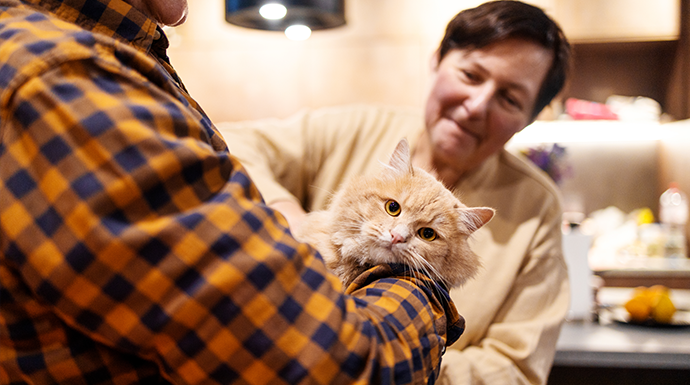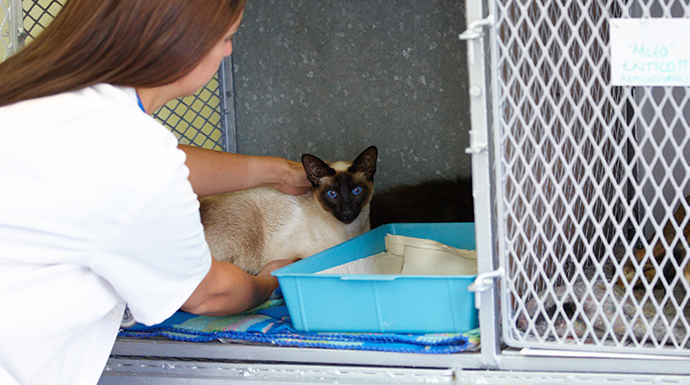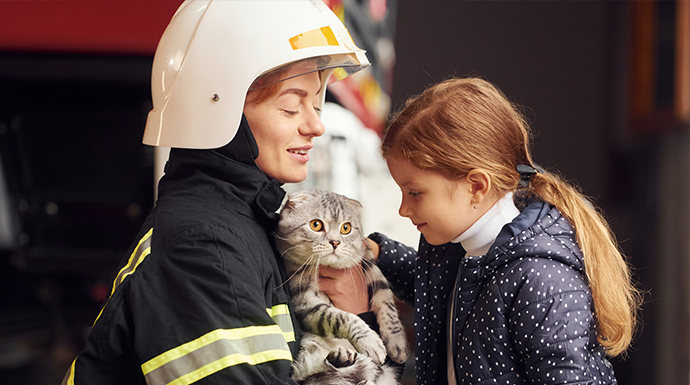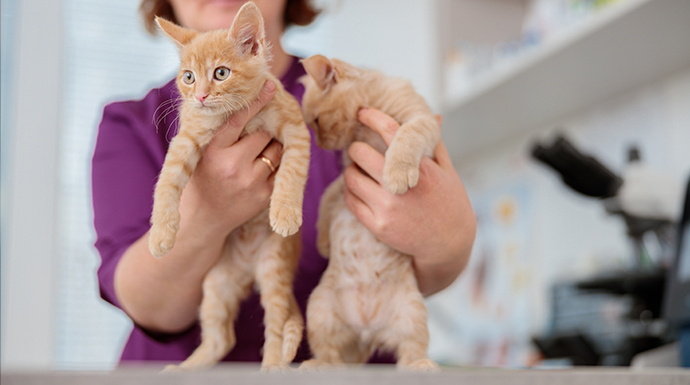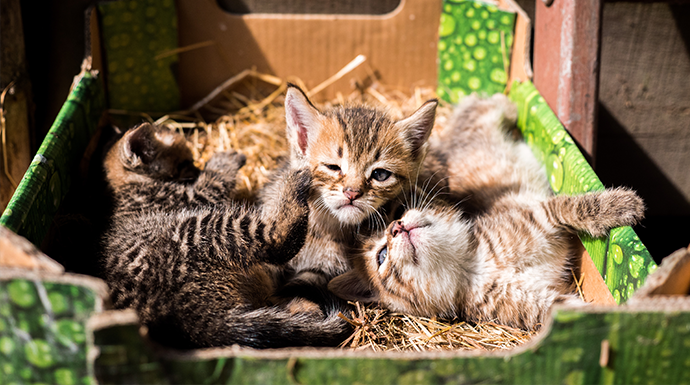What is National Kitten Day?
National Kitten Day, celebrated annually on July 10, is a special day dedicated to honoring kittens and raising awareness about their welfare. This day is not only about enjoying the joy and cuteness that kittens bring into our lives but also about highlighting the serious issues faced by abandoned and stray kittens.
Why National Kitten Day matters to us
Aside from being cat lovers ourselves, there are a lot of reasons National Kitten Day matters. Its goals are important and altruistic:
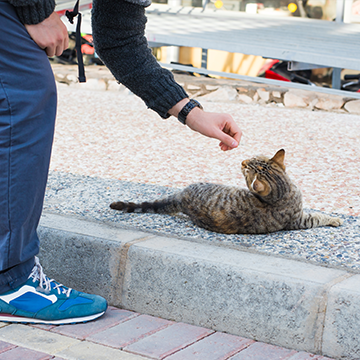
Raising awareness
Educating the public about the challenges faced by abandoned kittens and the importance of providing them with loving homes.
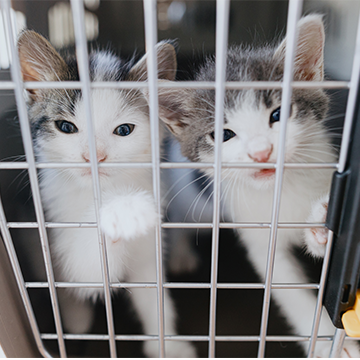
Promoting adoption
Encouraging people to adopt kittens from shelters and rescue organizations.
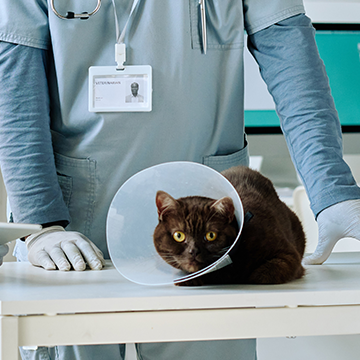
Highlighting veterinary roles
Showcasing the efforts of veterinarians and vet techs in caring for and rehabilitating kittens.
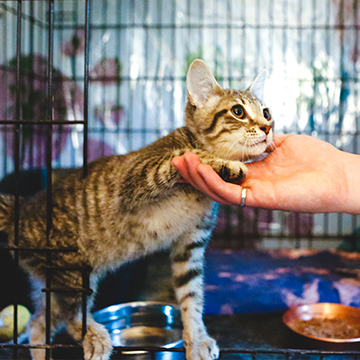
Fostering community involvement
Inspiring communities to participate in activities and initiatives that support kitten welfare, such as volunteering at shelters or organizing adoption events.
National Kitten Day serves as a reminder of the collective responsibility to protect and care for vulnerable kittens. It’s a day for veterinary professionals to reflect on their crucial role in this mission and to celebrate the progress made in improving the lives of kittens.
The plight of abandoned kittens
Every year, millions of kittens are abandoned or born into homelessness, facing a multitude of challenges that threaten their survival and well-being. Despite the best efforts of animal welfare organizations, many of these vulnerable creatures do not receive the care and protection they need.
Statistics paint a grim picture of the situation:
- High abandonment rates: Around 3.2 million cats enter U.S. animal shelters every year, with a significant portion being kittens. Many of these kittens are either abandoned by their owners or born to stray cats.
- Euthanasia numbers: Approximately 860,000 cats, including kittens, are euthanized in shelters annually due to overcrowding and lack of resources.
- Survival challenges: Without the protection of a mother or a human caregiver, abandoned kittens face challenging hurdles, including malnutrition, disease, and predation.
- Without proper nutrition, kittens cannot develop normally and are at risk of severe health issues and stunted growth.
- Kittens born on the streets or abandoned are often infested with parasites and exposed to contagious diseases, which can be fatal without timely intervention.
- Kittens rely on their mother's milk for antibodies that protect them from illnesses. Orphaned kittens lack this crucial immunity boost, making them highly vulnerable
The survival rate for feral kittens is low, with many not making it past their first few weeks.
Why veterinary professionals talk about spaying and neutering on National Kitten Day
Spaying and neutering are essential practices in veterinary medicine, particularly when it comes to addressing the issue of abandoned kittens. These procedures not only help control the feline population but also contribute to the overall health and well-being of cats.
Spaying and neutering help control overpopulation
One of the most significant benefits of spaying and neutering is the prevention of overpopulation.

Reducing unwanted litters
Each year, millions of kittens are born, many of whom end up in shelters or on the streets. By spaying and neutering, we can drastically reduce the number of unwanted litters.

Lowering shelter intake
Fewer kittens born means fewer animals entering shelters, alleviating the burden on these facilities and increasing the chances of adoption for those already in need.

Decreasing euthanasia rates
With fewer animals in shelters, the number of cats and kittens euthanized due to lack of space and resources can be significantly reduced.
Health benefits for kittens and cats
Spaying and neutering also provide numerous health benefits for individual cats.
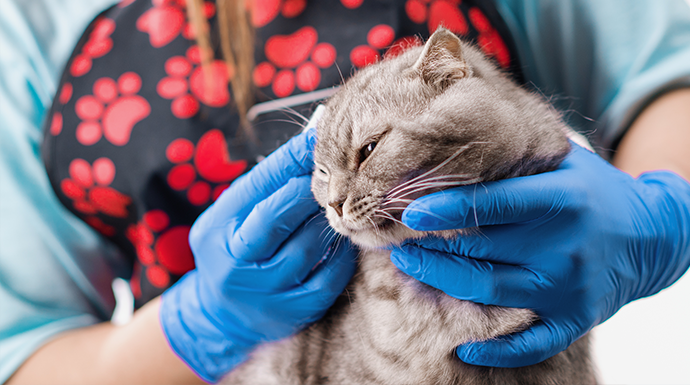
Disease prevention
Spaying female cats eliminates the risk of uterine infections and significantly reduces the likelihood of breast cancer, which can be fatal in about 90% of cats. Neutering male cats prevents testicular cancer and reduces the risk of prostate problems.
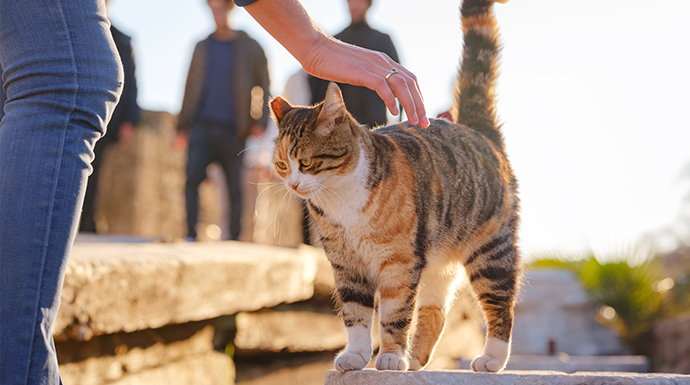
Behavioral improvements
Neutered males are less likely to roam, reducing their risk of injury from fights or accidents. Both spayed females and neutered males exhibit fewer aggressive behaviors and are less likely to mark their territory with urine.
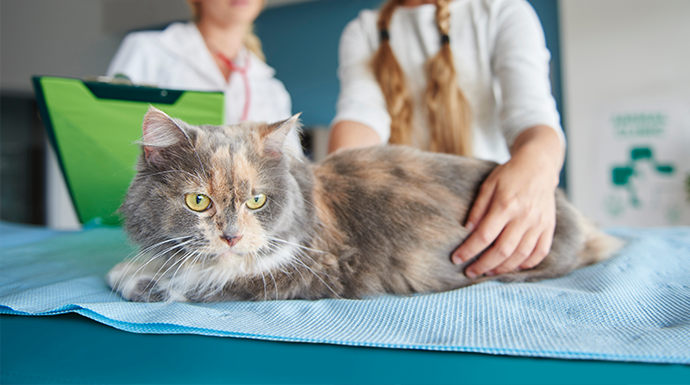
Longevity
Studies have shown that spayed and neutered cats tend to live longer, healthier lives due to the reduction in the risk of certain diseases and injuries.
The important community impacts of spaying and neutering
Beyond individual health benefits, spaying and neutering have a profound impact on the community.

Reducing stray populations
By preventing unwanted litters, the number of stray and feral cats is reduced, leading to fewer animals suffering on the streets.

Promoting responsible pet ownership
Spaying and neutering are key components of responsible pet ownership, contributing to the overall well-being of the pet population and the community.
How veterinarians can support the mission of National Kitten Day
If you aren’t involved in the mission of National Kitten Day outside the normal activities inside your clinic, but want to be, there are a handful of things you can do (this month, but also all year long) to advocate for kittens.
1. Engage in Community Outreach
Veterinarians can extend their influence beyond the clinic walls by engaging with the local community in the form of:
Hosting workshops or seminars for the public on topics such as kitten care, the importance of spaying and neutering, and responsible pet ownership.
Partnering with local schools to provide educational sessions for students, helping to foster a sense of responsibility and care for animals from a young age.
Participating in or organize community events such as adoption drives, fundraisers for local shelters, or National Kitten Day celebrations.
2. Collaborate with shelters and rescue groups
Strong partnerships with animal shelters and rescue organizations can amplify the impact:
Provide low-cost or free spaying and neutering services, vaccinations, and health checks for kittens in shelters.
Encourage clinic staff and clients to foster abandoned kittens, providing temporary homes and care until permanent homes can be found.
Establish or support adoption programs, helping to match kittens with loving families and ensuring they receive appropriate veterinary care.
3. Enhance public awareness campaigns
Raising awareness is a key component of National Kitten Day’s mission.
Utilize social media platforms to share informative posts, success stories, and calls to action related to kitten welfare and adoption.
Create and distribute brochures, posters, and flyers about the importance of spaying and neutering, kitten care, and the benefits of adoption.
Engage with local media to highlight the importance of National Kitten Day and the ongoing needs of abandoned kittens, potentially securing interviews or guest spots to discuss these issues.
4. Implement in-clinic initiatives
Veterinary practices can adopt several in-clinic initiatives to support the cause.
Organize donation drives for supplies such as kitten food, toys, blankets, and funds to support local shelters and rescue groups.
Offer special health packages for newly adopted kittens, including discounted first visits, vaccinations, and spaying/neutering.
Provide educational resources and counseling for clients adopting kittens, ensuring they are well-prepared for their new pets.
5. Advocate for policy changes
Veterinarians can also play a role in advocating for policies that protect and support abandoned kittens
Advocate for local, state, and national legislation that promotes animal welfare, supports shelters, and encourages spaying and neutering.
Work with local governments to develop and support community programs aimed at reducing stray and abandoned kitten populations.
By adopting these strategies, veterinarians can significantly contribute to the mission of National Kitten Day, helping to improve the lives of abandoned kittens and promote a culture of care and responsibility within their communities.
Make your important in-clinic work with kittens safer and easier
We manufacture low-cost-of-ownership equipment to help make your work with IV fluids safe and easy.
The iVETMate veterinary iv fluid warmer keeps iv fluids at a comfortable temperature, so drops in temperature during kitten surgeries don’t lead to complications.
The VetroCRI syringe pump is designed for controlled continuous administration of IV fluids and does not require software to operate, so it can be used in all veterinary clinics, regardless of technical aptitude or experience.
For more info, reach out to our team here.
